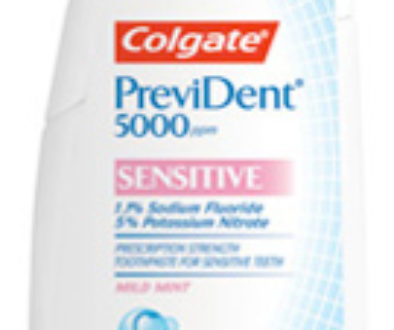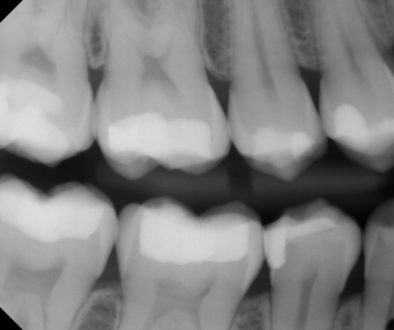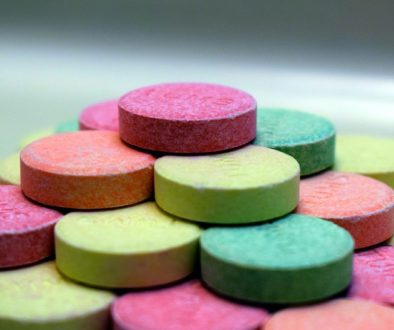What Causes Sensitive Teeth?
 There are a lot of different things that can cause your teeth to become sensitive. If you can figure out why your teeth are sensitive, you’ll know better how to treat the sensitivity.
There are a lot of different things that can cause your teeth to become sensitive. If you can figure out why your teeth are sensitive, you’ll know better how to treat the sensitivity.
Receding Gums – Your gums can recede from aggressive tooth brushing, periodontal disease, or with age. This exposes the root surface of your teeth which are much more sensitive. Treatments for receding gums include using a sensitive toothpaste, placing fillings over the root surfaces, or in severe cases, gum grafts over the receded areas.
Cavities – Cavities expose the more sensitive inner areas of your tooth. Large cavities can also irritate the nerve of your tooth. Both of these can cause your teeth to become sensitive. The only solution for this is to have your dentist take care of the cavity.
Whitening – During the whitening process, peroxides lift stain and debris out of the small tubes that make up your teeth. This leads to some temporary sensitivity until the holes become blocked up again (usually within a couple of days). No damage is done to your teeth during the process.
Acidic Foods and Drinks – Acidic foods and drinks break down the enamel layer of your teeth. The enamel layer is very dense and does a great job of protecting the nerve of your tooth from most hot and cold sensations. When this layer starts to break down you can develop sensitivity. Avoiding acidic foods and drinks will help the enamel layer remineralize and decrease your sensitivity.
Recently done dental work – Any time a tooth is drilled on it irritates the nerve of the tooth. The nerve becomes hypersensitive to any sensation which just takes some time to go away. This sensitivity can last from a day up to several weeks. Occasionally if the irritation is too much the nerve will become so irritated that it can’t heal anymore. This causes a constant, severe toothache that only goes away once you’ve had a root canal, an extraction, or the nerve dies altogether.
Bite is high – If you’ve recently had dental work done and your bite is slightly off it also irritates the nerve of the teeth. This irritation can cause the same type of sensitivity that you have from recently done dental work. Your bite may not even feel “off” but you may be hitting on the tooth in a different direction when you grind or move your teeth all around. Have your dentist take a look and see if your bite needs an adjustment.
Sinus pressure – Sinus pressure can irritate your top, back teeth. Sometimes it is a dull ache and other times your teeth will be sensitive. Once the sinus pressure resolves the tooth will settle down and the sensitivity should decrease.
Tooth extracted next to it – When you have a tooth taken out it exposes the side of the tooth or teeth next to it. These areas haven’t been previously exposed to the environment in the mouth and tend to be more sensitive than other areas. Usually this sensitivity will subside with time as the tubes in the tooth in those areas get blocked up again.
Genetic Predisposition – Some people just have more sensitivity than others. You may have had the same exact type of dental work done on a tooth and the same amount of receding gums but have far more sensitivity than someone else.



